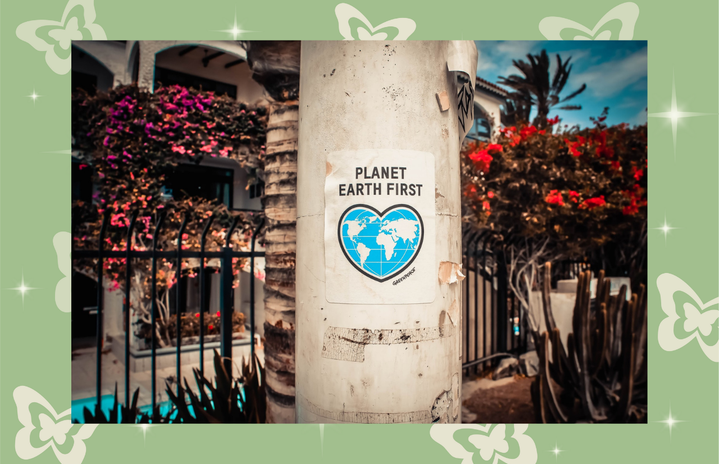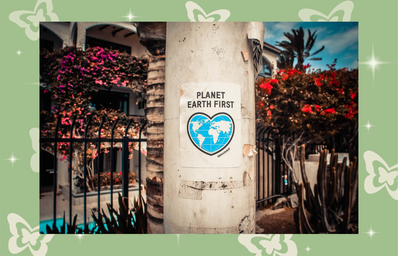This article is written by a student writer from the Her Campus at South Carolina chapter.
April is the month dedicated to appreciating all that the Earth has given us, such as food, water, a place to live, air, and more. Unfortunately, due to human development and industry, we have drained our home of its resources. The environment is in dire need of our help. Here are some ways that we can help the Earth heal from the trauma that we’ve caused.
- Limit the use of single-use plastics:
- Single-use plastics always end up in our landfills. You might be thinking that plastic can be recycled, but this is true to a certain extent. Not all plastics can be recycled, and the recycling process can take some time. Limiting the use of single-use plastic can lower the waste that goes into our landfills. Landfills produce greenhouse gases such as methane into the atmosphere that cause climate change and global warming. Instead of using the plastic cutlery that you get at take out restaurants, keep reusable cutlery on you. Instead of buying snack packs, buy family size and use reusable plastic bags for snack-size convenience.
- Plant a tree
- Trees take in carbon dioxide from the atmosphere. Carbon dioxide is a greenhouse gas that gets trapped in the Earth’s atmosphere. By planting a tree, you are creating a habitat for animals. They also help prevent erosion and help to keep the soil fertile.
- Carpool/public transport/walk/bike
- Cars and other vehicles emit greenhouse gases into the atmosphere. These greenhouse gases warm the atmosphere and get stuck inside the Earth’s atmosphere. Using other forms of transportation, such as walking, biking, or public transportation, can limit the amount of greenhouse gases emitted into the atmosphere.
- Buy organic produce
- Pesticides are often used on produce to lengthen its shelf life. Pesticides get into waterways from runoff and affect aquatic life. This runoff can cause algal blooms that decrease the amount of oxygen available in the water. Organic produce doesn’t use pesticides to lengthen shelf life. This means that the irrigation for this type of produce doesn’t cause algal blooms or the death of aquatic life. Buying organic produce can force farmers to stop using pesticides because of increased demand for organic produce.
- Donate money to help organizations, like World Wildlife Fund, or volunteer in the community
- The World Wildlife Fund works with countries around the world to fight against climate change, endangered species, and many other issues. You can donate to the WWF or symbolically adopt an animal. You can also volunteer to help with their initiative to keep Earth’s nature beautiful. Many other organizations also work to fight against these issues. You can volunteer to clean up littered areas or grow plants to help combat the issue. Be the change to keep the Earth a habitable planet for many years to come.


